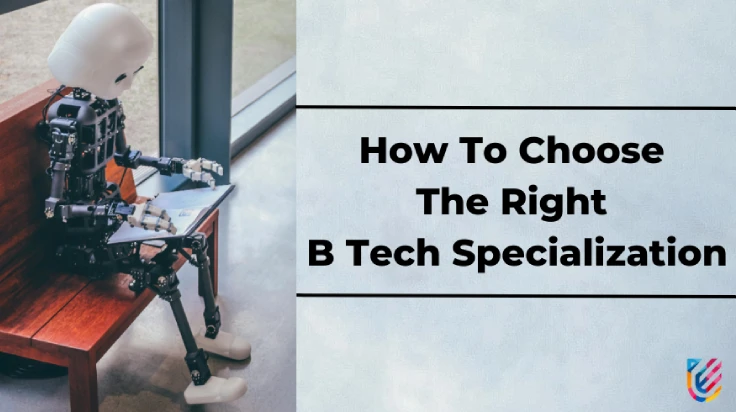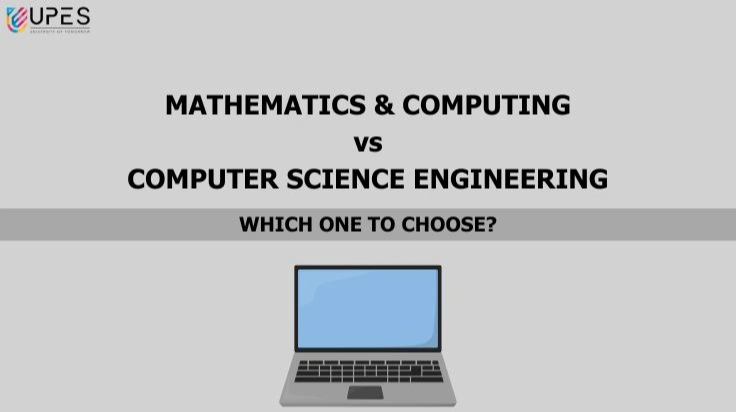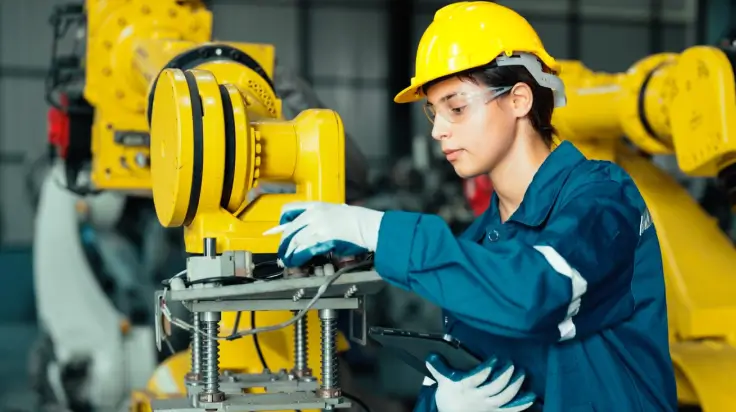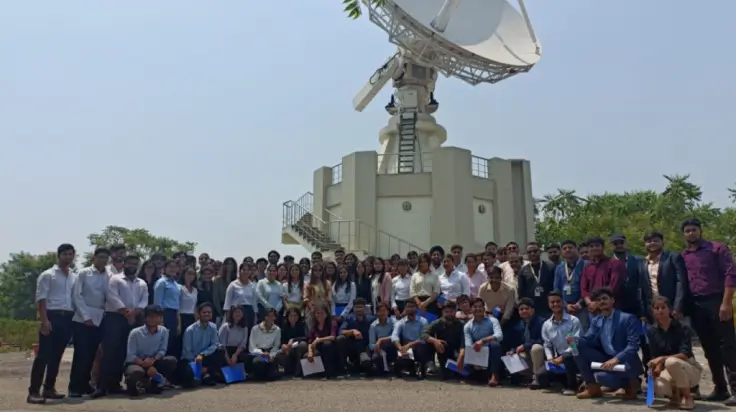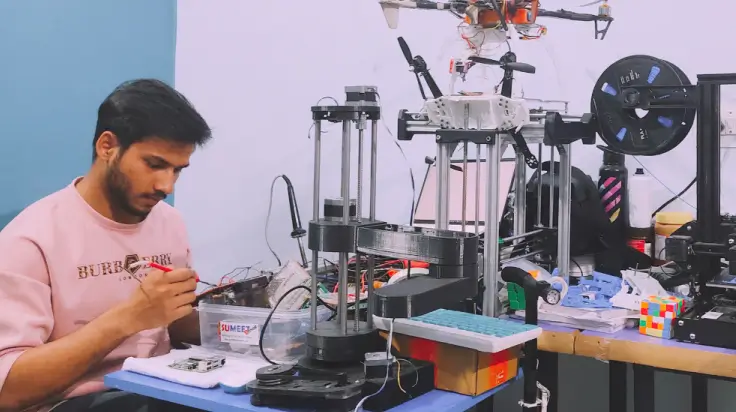Career Paths for B.Tech Graduates Beyond Traditional Engineering Roles
- UPES Editorial Team
- Published 04/03/2025
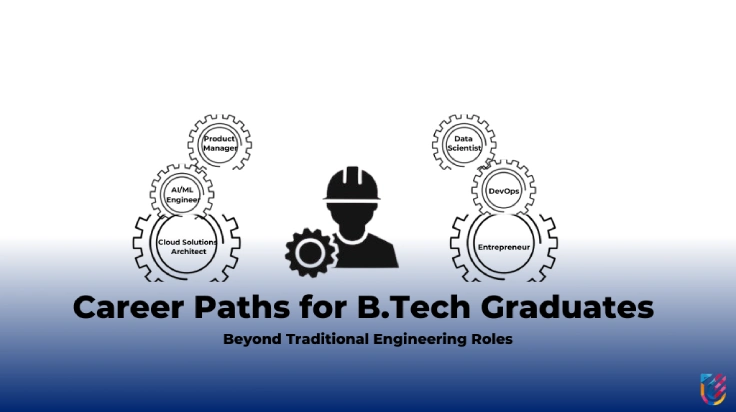
Table of Contents:
A B.Tech degree is a launchpad for diverse career opportunities that extend far beyond traditional engineering roles. With industries evolving rapidly, career options after B.Tech have expanded to encompass technology, management, analytics, and innovative domains. After all, we are at a turning point of history where people are bolder, more daring and willing to choose unconventional roles as opposed to the same, old traditional ones. If you’re wondering "after B.Tech what to do?" or exploring job opportunities after B.Tech, this guide will help you unlock exciting career paths.
Become future-ready with our Advanced Engineering programs
Know MoreJobs After B.Tech: Beyond Conventional Roles
Choosing a career path can often feel overwhelming and unpredictable, filled with both challenges and opportunities. However, the key to success lies in being well-informed and prepared. Rather than diving in blindly, take a moment to explore and understand the diverse non-traditional jobs after B.Tech. With the right knowledge and planning, you can pave the way for a fulfilling and innovative career. Read on to discover exciting opportunities beyond conventional engineering roles!
| Career Profile | Job Role | Skills Required | Companies Hiring | Average Salary | Why it's unique |
| Data Scientist | Analyze large datasets to derive insights, optimize processes, and predict trends. | Python, R, SQL, Machine Learning, Data Visualization | Google, Microsoft, Infosys, Accenture, TCS. | ₹8-15 LPA (entry-level); ₹25+ LPA (experienced).
| A fusion of analytical and technical expertise, perfect for problem-solvers. |
Cloud Solutions Architect
| Design and manage cloud-based systems to optimize performance and scalability. | AWS, Azure, Google Cloud, Kubernetes, Networking.
| Amazon Web Services (AWS), IBM, Oracle, Microsoft.
| ₹10-20 LPA (entry-level); ₹25-40 LPA (senior roles). | Key for businesses migrating to the cloud.
|
AI/ML Engineer
| Develop intelligent systems using Artificial Intelligence and Machine Learning. | High TensorFlow, PyTorch, NLP, Neural Networks.
| Google, OpenAI, NVIDIA, Amazon, Wipro | ₹8-18 LPA (entry-level); ₹30+ LPA (experienced) | Powers innovations in automation, robotics, and decision-making.
|
AI/ML Engineer
| Protect systems and networks from cyber threats and vulnerabilities. | Ethical Hacking, Penetration Testing, Cryptography, Risk Assessment.
| Palo Alto Networks, Cisco, CrowdStrike, Deloitte | ₹7-12 LPA (entry-level); ₹20-30 LPA (experienced). | Ensures digital safety in an interconnected world. |
Product Manager
| Oversee product development, strategy, and market positioning | Business Analysis, Agile Methodologies, User-Centric Design, Communication | Flipkart, Amazon, Meta, Adobe, BYJU's | ₹12-20 LPA (entry-level); ₹35+ LPA (senior roles) | Combines technical and managerial expertise |
| Entrepreneur/Startup Founder | Build and scale innovative ventures in technology or other sectors. | Innovation, Leadership, Financial Management, Networking | Self-Employed | Unlimited potential, depending on success | Directly solve real-world problems with your ideas. |
| Dev Ops | Automate and streamline software development and deployment processes.
| Jenkins, Docker, CI/CD, Cloud Platforms | Red Hat, Atlassian, Amazon, IBM | ₹8-15 LPA (entry-level); ₹20-30 LPA (experienced) | Bridges development and IT operations for efficiency. |
After B.Tech, What Next? Factors to Consider
When exploring what to do after B.Tech, consider these factors:
- Interest: Choose a path that aligns with your passion—tech innovation, business, or creative problem-solving.
- Market Demand: Fields like AI/ML, Cybersecurity, and Cloud Computing are booming with global demand.
- Skills Required: Upskill in relevant technologies or management practices through certifications and courses.
- Growth Potential: Opt for roles with scalability and long-term career prospects.
- Work-Life Balance: Some roles like Cybersecurity Analyst require constant vigilance, while others like Data Science offer flexibility.
How UPES Helps You Build a Lucrative Career After BTech
Choosing the right institution can make all the difference in your career, and UPES School of Advanced Engineering stands out as a premier destination for Btech aspirants. Here's why a BTech from UPES can set you up for success:
1. Industry-Aligned Curriculum
UPES offers specialized BTech programs tailored to the latest industry trends. The courses are designed to meet evolving market demands.
2. Experiential Learning Opportunities
At UPES, students benefit from hands-on learning through internships, live projects, and industry collaborations. These experiences prepare you for the real-world challenges of after BTech job opportunities.
3. Expert Faculty and Infrastructure
With experienced faculty members and world-class infrastructure, UPES ensures an enriching academic experience. The university also emphasizes skill-building through workshops and seminars.
4. Placement Success
UPES has a strong track record of placements, with top recruiters like IBM, Oracle, Microsoft offering roles in AI/ML, Cloud Computing, and more. Graduates from UPES often secure some of the highest-paying jobs after BTech with salary packages starting at ₹5–12 LPA.
5. Networking and Global Exposure
The university encourages global learning through international collaborations, exchange programs, and industry tie-ups, giving students a competitive edge in job opportunities after Btech.
At UPES School of Advanced Engineering or UPES School of Computer Science, students benefit from industry-aligned curricula, internship opportunities, and exposure to real-world technological scenarios.
Challenges Faced During Career Transitions
When looking for unconventional roles or switching over a completely new profile, you’ll feel many obstacles on your path. Make sure you are aware of those pitfalls and come out of them victoriously, nonetheless.
- Skill Gap: Many B.Tech graduates feel underprepared for industry demands.
- Limited Exposure: Lack of awareness about non-traditional roles.
- Networking Hurdles: Transitioning into a new domain often requires building a strong network.
How to Overcome Challenges:
- Upskilling: Take advantage of platforms like Coursera, edX, and LinkedIn Learning.
- Internships and Freelance Projects: Gain hands-on experience to build your portfolio.
- Networking: Attend industry events and connect with professionals on LinkedIn.
Look at the challenges as opportunities to learn more and you’ll be able to grow both personally and professionally.

Our counsellors are just a click away.
Conclusion: Unlocking Job Opportunities After B.Tech
A B.Tech degree from institutions like UPES School of Advanced Engineering or UPES School of Computer Science opens doors to myriad opportunities. Whether you aim to innovate in tech, lead in business, or secure systems in cybersecurity, the possibilities are endless.
The key is to stay adaptable, continuously upskill, and embrace emerging trends to succeed in your chosen field. Take the leap and explore the dynamic career options after B.Tech today!
UPES Editorial Team
Written by the UPES Editorial Team
UPES Admission Enquiry
Subscribe to UPES Blogs
Join our community for exclusive stories, insights, and updates
By clicking the "Subscribe" button, I agree and accept the privacy policy of UPES.










